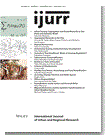This article draws on Margaret Radin’s theorization of ‘contested commodities’ to explore the process whereby informal housing becomes formalized while also being shaped by legal regulation. In seeking to move once-informal housing into the domain of official legality, cities can seldom rely on a simple legal framework of private-law principles of property and contract. Instead, they face complex trade-offs between providing basic needs and affordability and meeting public-law norms around living standards, traditional neighbourhood feel and the environment. This article highlights these issues through an examination of the uneven process of legal formalization of basement apartments in Vancouver, Canada. We chose a lengthy period—from 1928 to 2009—to explore how basement apartments became a vital source of housing often at odds with city planning that has long favoured a low-density residential built form. We suggest that Radin’s theoretical account makes it possible to link legalization and official market construction with two questions: whether to permit commodification and how to permit commodification. Real-world commodification processes—including legal sanction—reflect hybridization, pragmatic decision making and regulatory compromise. The resolution of questions concerning how to legalize commodification are also intertwined with processes of market expansion.
Details
Written by:
Pablo Mendez and Noah Quastel
Digital Object Identifier (DOI)
10.1111/1468-2427.12337
About DOI

